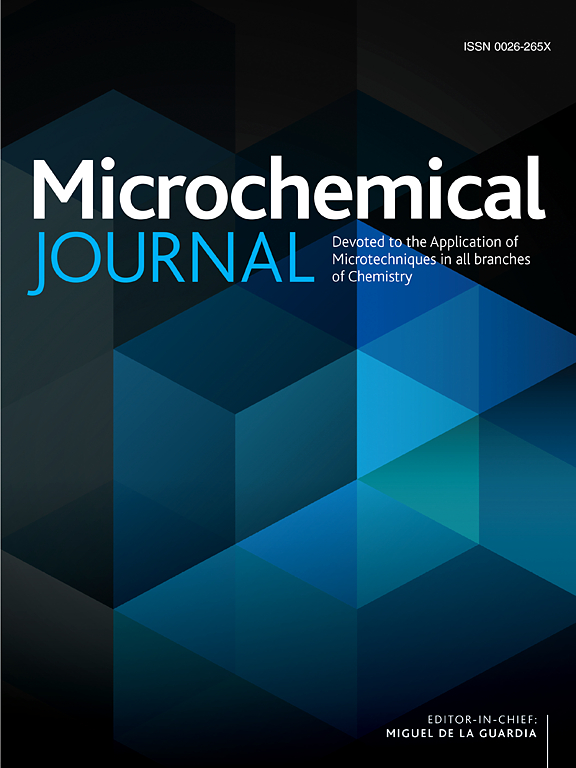Sandwich-type electrochemical aptamer-based sensor for rapid nanomolar detection of anesthetic drug procaine in biofluids
IF 4.9
2区 化学
Q1 CHEMISTRY, ANALYTICAL
引用次数: 0
Abstract
It is important to develop clinical point-of-care testing (POCT) methods to avoid side effects and even fatalities due to anesthetic drug overdose. Due to their inherent advantages (e.g. ease of modification, thermal stability, and low cost), electrochemical aptamer-based (EAB) sensors are promising alternatives to conventional analytical methods. However, most of the current methods require some complex modification steps for the preparation of electrodes or signal probes as well as the indirect measurement of signals, and the application of these methods as POCT devices remains a challenge. In this work, a sandwich-type EAB sensor was developed for the direct determination of procaine in biofluids. The original aptamer was split into two segments, with one fragment modified with thiol and the other modified with a redox label. The detection process was rapid as conformational changes occur almost instantaneously when the aptamer binds to the target. Moreover, the binding properties of the aptamer towards the target were characterized by circular dichroism spectroscopy, molecular docking simulations and apparent electron transfer rates test. The simple, cost-effective and reagentless sandwich-type EAB sensor achieved nanomolar detection of procaine with a limit of detection (LOD) of 1.9 nM, 5.4 nM and 3.3 nM in buffer, 5 % urine and 2.5 % serum, respectively. This work is expected to play a role in the field of clinical drug analysis.

用于快速检测生物流体中纳摩尔麻醉药物普鲁卡因的三明治式电化学适配体传感器
本文章由计算机程序翻译,如有差异,请以英文原文为准。
求助全文
约1分钟内获得全文
求助全文
来源期刊

Microchemical Journal
化学-分析化学
CiteScore
8.70
自引率
8.30%
发文量
1131
审稿时长
1.9 months
期刊介绍:
The Microchemical Journal is a peer reviewed journal devoted to all aspects and phases of analytical chemistry and chemical analysis. The Microchemical Journal publishes articles which are at the forefront of modern analytical chemistry and cover innovations in the techniques to the finest possible limits. This includes fundamental aspects, instrumentation, new developments, innovative and novel methods and applications including environmental and clinical field.
Traditional classical analytical methods such as spectrophotometry and titrimetry as well as established instrumentation methods such as flame and graphite furnace atomic absorption spectrometry, gas chromatography, and modified glassy or carbon electrode electrochemical methods will be considered, provided they show significant improvements and novelty compared to the established methods.
 求助内容:
求助内容: 应助结果提醒方式:
应助结果提醒方式:


